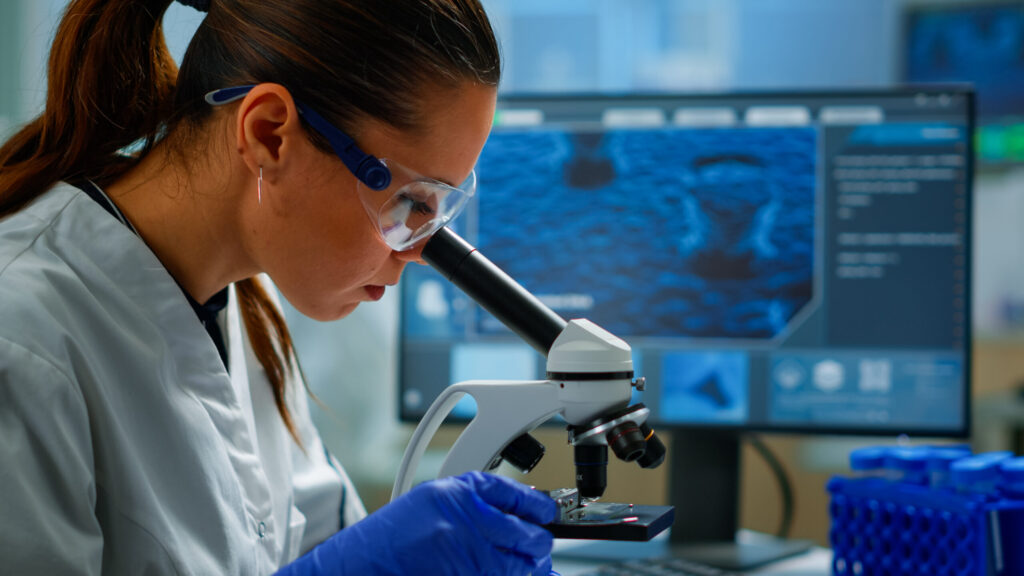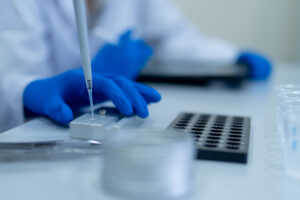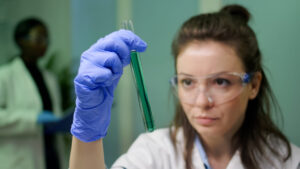Genetic diagnosis refers to the process by which an individual receives a diagnosis of a rare disease or genetic syndrome. This process can include several stages, including genetic analysis, genetic counseling, and genetic testing. In some cases, it may involve the ruling out of a rare disease altogether.
Generally, a genetic diagnosis is confirmed through genetic testing, which leads to the identification of a specific rare disease in an individual. The types of genetic testing involved may vary according to the type of rare disease, the mode of inheritance, and the age of the individual being tested.
The importance of genetic diagnosis
An accurate and fast genetic diagnosis is important to ensure rare disease patients receive timely, swift support and help with managing life with a rare disease. Without a confirmed diagnosis patients are left stranded, and are unable to access the support and possible treatment they might need.
The process
To get to the end of the process, to a confirmed, and correct genetic diagnosis (sadly, misdiagnosis rates are still very high in the rare disease field), there are several key steps patients must first undergo.
Step 1 Genetic Analysis
This initial stage of the process will help a patient, and their doctors, understand if there is indeed cause for further investigation into a genetic cause for their specific set of symptoms. This part of the diagnosis process may involve options for invasive testing (including blood testing and DNA sequencing testing); or it might involve less-invasive methods such as facial analysis screening for the identifiable markers of a rare disease.
Following genetic analysis, potential rare disease patients should have a better understanding of where they are in their rare disease diagnosis journey, and what they need to do next to reach a diagnosis. An accurate genetic analysis is crucial and will determine how successful the rest of the diagnostic process is, as it will contribute to which genetic tests are recommended.
Step 2 Genetic Counseling
This part of the process will often be repeated at different stages of the genetic diagnosis journey. It may precede and follow genetic analysis, genetic testing, and the reaching of a diagnosis itself. This is because it is an integral part of the genetic diagnosis process and an invaluable source of information and support for rare disease patients.
Genetic counselors also contribute greatly to the accuracy of the process and can recommend the most relevant genetic testing options to rare disease patients and their families. Genetic counseling also offers crucial emotional support through what can be a very challenging, difficult process as individuals and families make sense of a rare disease diagnosis.
Step 3 Genetic Testing
Genetic testing analyzes cells within the body, in order to identify changes or mutations in the genes, chromosomes or proteins that might trigger or cause a genetic syndrome. Genetic testing can also be used to understand the chances of an individual developing a specific rare disease, based on their genetic makeup.
The identification of these mutations or changes in the genes or chromosomes, can be used to help reach a genetic diagnosis.
There are many different types of genetic tests. Prenatal genetic testing, for example, can help identify the possibility of the presence of a rare disease in an as yet unborn child. Preimplantation genetic testing is used during the IVF process to determine if an embryo is a carrier of a rare disease, or gene mutations that might put their future children at risk of one.
Some couples undergo genetic testing before starting a family, to understand if they are the carriers of genetic mutations that might put their future children at risk of developing a genetic syndrome, or of passing one on.
Most genetic tests require the taking of blood, although amniocentesis requires taking a sample of the amniotic fluid that surrounds a developing fetus in the womb.
Genetic Diagnosis A Definition & Improvements
Advancements in genetic testing, and in making it more targeted, are helping more and more rare disease patients reach a more accurate genetic diagnosis. But in order to access the right genetic testing options, rare disease patients must also have unfettered access to accurate genetic analysis, and strong genetic counseling services. Accessibility to these two services, is crucial in ensuring the success of genetic testing in reaching an accurate genetic diagnosis.



